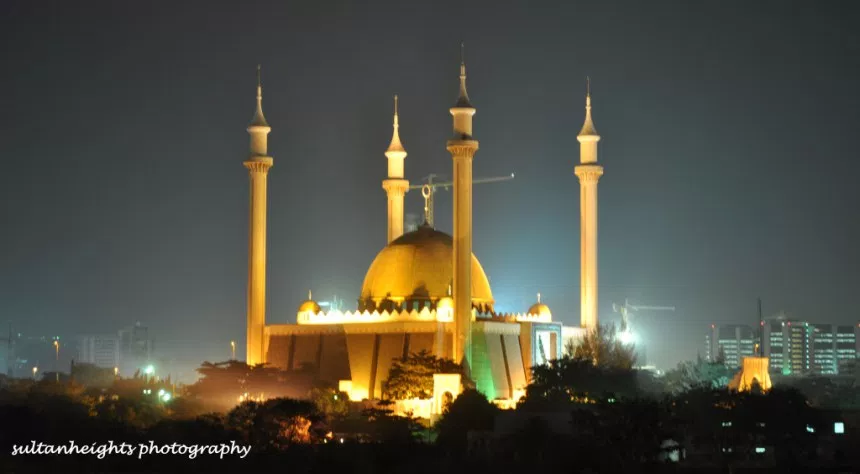In the name of Allah, the Most Merciful, the Grantor of Mercy
All praise is due to Allah, the Lord of the Worlds. Peace and blessing be upon whom Allah sent as a mercy to the Worlds, upon his Family, his Companions and his Brothers till the Day of Resurrection.
Dear brothers and sisters, the religion of Islam prohibits whatever harms the individual, the family or the society. On the other hand it urges and encourages whatever is good and useful to mankind. Allah has never prohibited anything except that He has compensated us with something far better. He Almighty says:
“Also for those who follow the Messenger, the unlettered Prophet they find described in the Torah that is with them, and in the Gospel, who commands them to do right and forbids them to do wrong, who makes good things lawful to them and bad things unlawful, who will relieve them of their burdens and of the shackles that weigh upon them…” [Qur’an, 7:157]
Because the human self tends to go after its desires (without any regard to the harms that might come out of such pursuits) Islam taught us the ways by which to control our baser selves. Laws and rules were put to cure such problems and the Prophet’s tradition came to confirm these legislations.
One of these serious problems is addiction to drugs and alcoholic drinks. The Arabs were so addicted to alcoholic drinks down to the bones. They used to write poetry about wine and such poems would usually start by mentioning the ruins then describing wine and its lovable effect on them. They drank in their houses, in their clubs, and at work. Then Islam came with the radical solution for this problem.
The Qur’anic verses were revealed to prohibit drinking in an amazing gradual progression starting with:
“From the fruit of the date palm and the grapes you derive intoxicants as well as wholesome food. Surely in this there is a sign for men of understanding.” [Qur’an, 16:67]
In which Allah describes food as ― wholesome but not the same for the ― intoxicants.
Then He shed light on its harms in:
“They ask you [Prophet] about intoxicants and gambling. Say, There is great sin in both, although they have some benefit for people: but their harm is greater than their benefit.” They ask you what they should spend [in Allah’s cause]. “Say, Whatever is surplus to your needs.” Thus Allah makes His commandments clear to you so that you may reflect.” [Qur’an, 2:219]
Then He prohibited praying for those drink in. He the Most High says:
“Believers, do not approach your prayers when you are drunk, until you understand what you say, nor when you are in a state of impurity, except when you are on a journey, till you have bathed. And if you are ill, or on a journey or have relieved yourselves or when you have consorted with women and you cannot find any water, then find some clean sand and wipe your face and your hands with it. Allah is gracious and forgiving.” [Qur’an, 4:43]
Finally He Almighty broke the ultimate news in:
“Believers, intoxicants and gambling and [occult dedication of] stones and divining arrows are abominations devised by Shaitan (Satan). Avoid them, so that you may prosper.” [Qur’an, 5:90]
Aisha (RA) knew how deeply rooted this problem was and that’s why she said:
“Had the first thing revealed about drinking been “Do not drink!” they would have all refused it and said stubbornly “We will never stop drinking!” But the society that was reared by the Prophet Muhammad (Peace be upon him) capitulated to the order the minute it was revealed.”
Anas narrated that:
“I was standing amongst the uncles of my tribe serving them Fadikh while I was the youngest of them, when a person came and said, “Verily the use of liquor has been prohibited.” They said, “Anas, spill it away. So I spilt it.” [Al-Bukhari]
With the prohibition of drinking the Prophet (Peace be upon him) kept repelling his companions from it by saying:
“Do not drink alcohol, it is the key to all evils.” [Ibn-Majah]
He even cursed those who manufacture and sell it in:
“Allah curses liquor, its drinker, its server, its seller, its buyer, its maker, its carrier and the one to whom it’s carried.” [Abu Dawud]
Respected servants of Allah, the door, however, has never been closed for those who want to repent but it was always kept wide open. The Prophet (Peace be upon him) said:
“Every intoxicant is khamr (wine) and every intoxicant is forbidden. If anyone drinks wine, Allah will not accept prayer from him for forty days, but if he repents, Allah will accept his repentance. If he repeats it a fourth time, it is binding on Allah that He will give him tinatul-khabal to drink. He was asked, “What is tinatul-khabal Messenger of Allah?” He replied, Discharge of wounds, flowing from the inhabitants of Hell. If anyone serves it to a minor who does not distinguish between the lawful and the unlawful, it is binding on Allah that He will give him to drink the discharge of wounds, flowing from the inhabitants of Hell.” [Abu Dawud]
He (Peace be upon him) urged his companions to avoid it in many narrations and called it ― the mother of all sins. He said:
“Once a pious man met a woman, who invited him towards committing a sin (adultery). The man flatly refused. After her constant insisting, she still failed. Thereafter, she gave him a choice of options: 1. Committing adultery with her or 2. To murder her newly born child, whom had she begot from her previous husband, or 3. To consume some alcohol which she possessed. If he were not willing to comply then she would scream and falsely inform the inhabitants of that place that he had raped her. The man upon pondering decided to consume the alcohol, taking it to be least harmful of the three sins. Upon the consumption of alcohol, he became intoxicated, and then consequently, he killed the child and also committed adultery with the woman.” [Al-Nasa’i]
When the Prophet (Peace be upon him) gets concerned with addressing a problem he does not concern himself much with the names but rather with the terms. So when he prohibited drinking he prohibited everything that would have the same effect of drinking on the human being. He didn’t have to spell out names like wine, liquor, beer… etc; just as long as they all had the same effect. He (Peace be upon him) said:
“Anything that intoxicates is forbidden.” [Al-Bukhari]
After the prohibition of drinking got settled the legislations for punishing those who committed this transgression started formulating. Abu Hurairah (RA) said:
“A man who drank wine was brought to the Prophet (Peace be upon him). The Prophet said, “Beat him!; Abu Hurairah added; So some of us beat him with our hands, and some with their shoes, and some with their garments (by twisting it) like a lash, and then when we finished, someone said to him, “May Allah disgrace you!” On hearing that the Prophet (Peace be upon him) said, “Do not say so, for you are helping Shaitan (Satan) to overpower him.” [Al-Bukhari]
The purpose from the beating was only to deter anyone who might be tempted to take any intoxicant or drug. The purpose from the beating was not revenge but reformation and that’s why the Prophet (Peace be upon him) said to his companions, “Do not say so, for you are helping Shaitan (Satan) to overpower him.”
This was how the Prophet (Peace be upon him) addressed the problems in his society by urging them first to fear Allah, then to watch themselves, and last by the deterring laws.
Dear brothers and sisters, throughout recent sermons we have seen a full display of the Prophetic method in handling the problems of his time; how he helped alleviate unemployment, how he helped improve the economy of his nation, how he helped the poor, and how he helped cure even the most deeply rooted problems that afflicted his society. If all this proves anything it proves his originality and the authenticity of his Prophethood (Peace be upon him).
All praise and thanks are due to Allah alone, the Lord of the worlds. May the peace, blessings and salutations of Allah be upon our noble Messenger, Muhammad, and upon his family, his Companions and his true and sincere followers.
Murtadha Muhammad Gusau is the Chief Imam of Nagazi-Uvete Jumu’ah and the late Alhaji Abdur-Rahman Okene’s Mosques, Okene, Kogi State, Nigeria. He can be reached via: [email protected] or +2348038289761.
This Jumu’ah Khutbah (Friday sermon) was prepared for delivery today, Friday, Jumadal Ula 3, 1442 AH (December 18, 2020).




